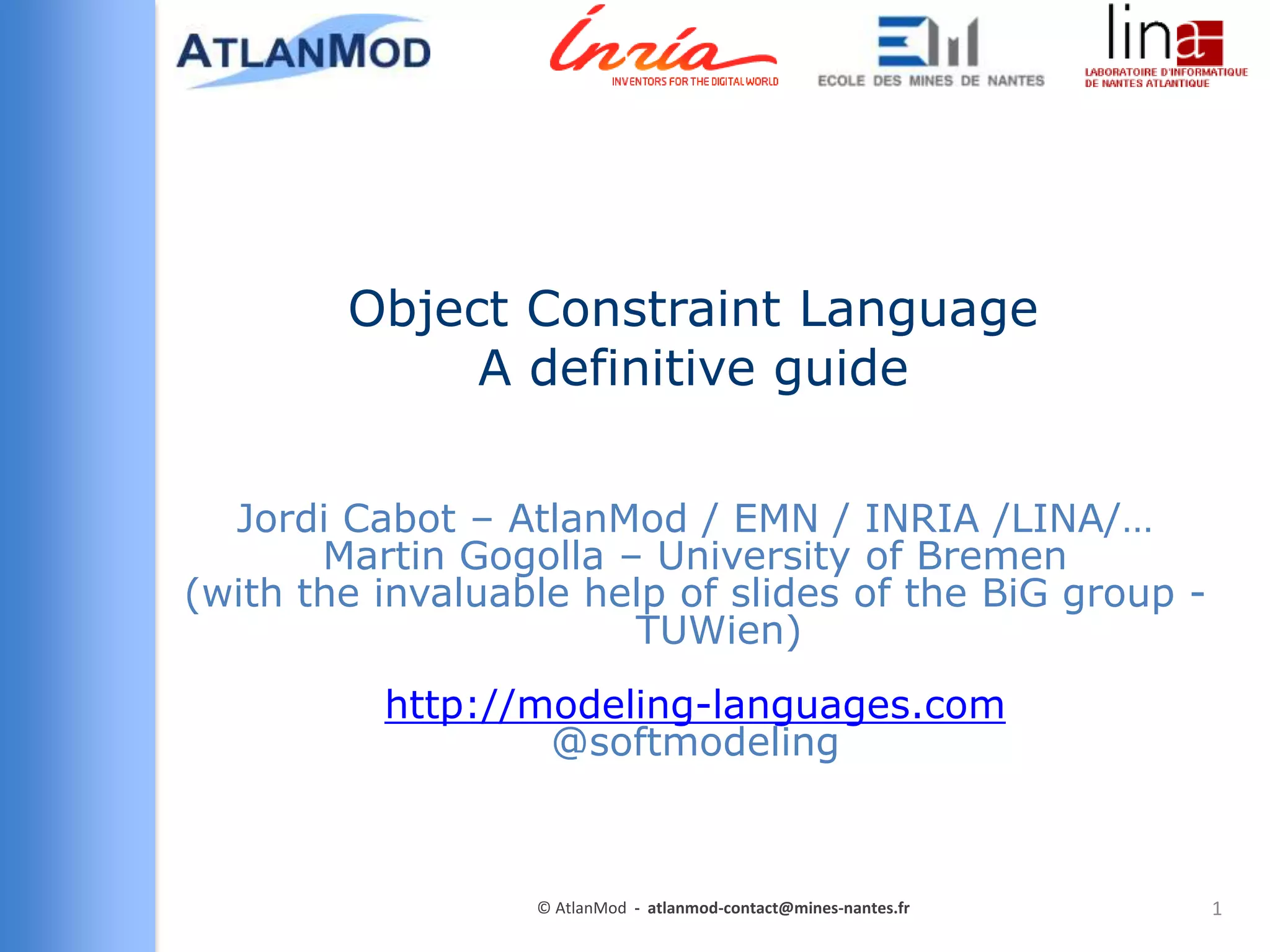The document provides an overview of the Object Constraint Language (OCL), emphasizing its essential role in enhancing the expressiveness of UML models. It illustrates OCL's application in enforcing constraints and formalizing model transformations, demonstrating its advantages over alternatives. Basic concepts, syntax, types, and operations within OCL are outlined, showcasing its utility in various modeling contexts.



































































































![EMFtoCSP Library
All this with the help of Prolog library for OCL
(2000 LOC)
Key element of ECLiPSe (the constraint solver)
-> support of a higher-order predicate
ocl_int_greater_than(Instances, Vars, Pred1, Pred2, Result) :-
apply(Pred1, [Instances, Vars, X]), % X is the result of
evaluating Pred1
apply(Pred2, [Instances, Vars, Y]), % Y is the result of
evaluating Pred2
Result::0..1, % Result is a boolean value
#>(X, Y, Result). % Result is true iff X > Y
© AtlanMod - atlanmod-contact@mines-nantes.fr 100](https://image.slidesharecdn.com/presentationcabot-120628232753-phpapp01/75/OCL-tutorial-100-2048.jpg)

















